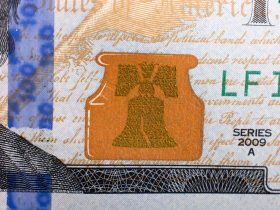Curaleaf Holdings Inc.
CURLF,
the largest publicly-traded cannabis company in the U.S. by market capitalization, plans to move its stock listing to the Toronto Stock Exchange, the company’s chairman told MarketWatch on Thursday.
Boris Jordan said the company has cleared a TSX listing requirement by raising about C$16 million in capital as a final step toward a formal application to the exchange in the near future.
TSX will then review the application, with a potential listing over the coming months. A spokesperson for the TSX did not immediately reply to an email from MarketWatch about the Curaleaf listing.
The TSX listing will bring stability, better governance and better protection from market manipulation of its stock, Jordan said.
Curaleaf said Canaccord Genuity has agreed to purchase 2.7 million offered securities from the company for total gross proceeds of C$16.2 million ($12 million). The bank, in turn, will offer the securities in Canada and the U.S. on a private-placement basis to qualified institutional buyers.
Curaleaf is making the offering to satisfy a condition required for a potential listing on the TSX, the company said.
Curaleaf’s stock rose by 0.9% on Thursday. The stock is up 4.5% so far in 2023, compared to a 15% gain by the AdvisorShares Pure US Cannabis ETF
MSOS.
Generally, the Canadian Securities Exchange (CSE) continues to house stock listings of most other cannabis companies operating in the U.S. The stocks also trade on the OTC market in the U.S., which is more thinly regulated than the New York Stock Exchange and the Nasdaq.
However the NYSE and the Nasdaq remain off-limits for cannabis companies doing business in the U.S. due to the Schedule I category for cannabis under U.S. drug law.
Despite its merits for cannabis companies seeking a public listing of some kind, the CSE remains a very small exchange compared to the TSX, which ranks as one of the larger stock exchanges in the world. CSE is considered a venture exchange, which means it doesn’t qualify for many institutions and pension funds that are typically prohibited from investing in venture-listed companies. The TSX has no such restrictions.
TerrAscend
TSND,
has seen trading volume grow roughly three- or four-fold since it moved its listing to the TSX in a move that drew praise from analysts over the summer.
Also read: Canopy Growth’s stock rockets to a record rally, has quadrupled in two weeks
With a market capitalization of about $3 billion and annual sales of about $1.4 billion, Curaleaf ranks as the largest publicly-traded cannabis company doing business in U.S. states where it’s legal. Other big names include Green Thumb Industries
GTBIF,
Cresco Labs Inc.
CRLBF,
Trulieve Cannabis Corp.
TCNNF,
and Verano Holdings Corp.
VRNOF,
The move by Curaleaf comes as the U.S. Drug Enforcement Administration reviews the Schedule I status of cannabis after the U.S. Department of Health and Human Services recommended a Schedule III classification, which would sanction cannabis for medical use.
Also read: HHS recommendation to reschedule cannabis keeps pot stocks hot, but questions remain
It’s not clear if the new categorization will satisfy listing requirements for the NYSE and the Nasdaq.
In March, U.S. Attorney General Merrick Garland said the department was working on a position statement that will be “very close to what was done” in the Cole memorandum, which was a policy put in place in 2013 that limited the role of federal law-enforcement regarding cannabis.
Cannabis stocks got a lift earlier this week when the U.S. Senate Committee on Banking, Housing and Urban Affairs approved the Secure and Fair Enforcement Regulation Banking Act, now known as the SAFER Banking Act of 2023.
Also read: TerrAscend says Morgan Stanley, BNY Mellon lift custody ban on cannabis for Toronto Stock Exchange listing
Read the full article here













Leave a Reply